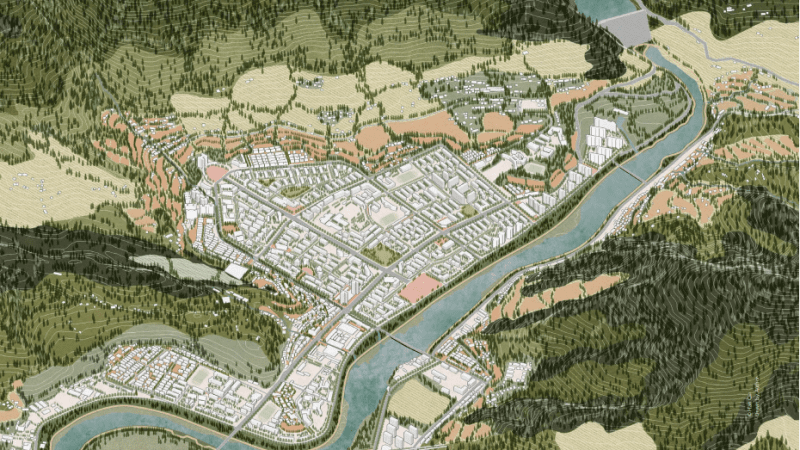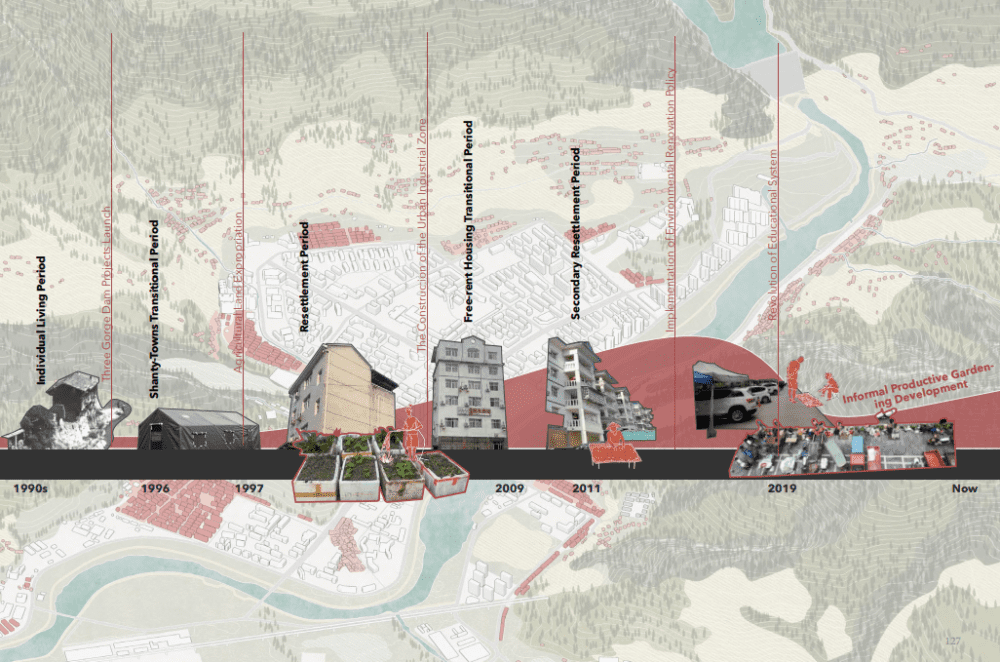Intersections between Human Settlement Patterns and Productive Landscapes in the Postmigration Period of the Three Gorges Dam, China
Eindproef Master (of Science) Urbanism, Landscape and Planning

Samenvatting
Between 1994 and 2009, the construction of the Three Gorges Dam Project (TGP) forced over 1.2 million people to resettle and urbanize into more than 140 new towns in the TGP region, resulting in significant environmental, social-cultural, and economic challenges. These challenges, in turn, have led to ongoing transformations and new crises in the post-migratory period (2009-now), in part because of how and where the towns were planned, including the differential regimes between urban and rural hukous. This thesis aims to explore the forced resettlement of people and landscapes in the TDP region mobilizing vertical history, housing cases, and immigration movements across the whole territory. Specifically, with a particular focus on Gufu New Town, the study will investigate how migrants rebuilt their settlements, livelihoods, and socio-cultural networks after the dam’s construction, and how they have used informal productive landscapes as a healing practice. In conclusion, the research will propose a more socially and ecologically sustainable approach to addressing current challenges and future development by redesigning the interplay between human settlement and productive Landscapes.
Hoe draagt deze masterproef bij aan duurzaamheid?
I proudly submit my thesis for the Future Proef Award due to its relevance to sustainability and social impacts. It addresses the conflict between nature, urbanization, and agricultural land, focusing on China’s Three Gorges Dam Project. While rooted in China, its lessons are applicable globally. The thesis explores sustainability comprehensively, analyzing the dam’s impact on immigrants’ lives and social structures. It also examines political dynamics and proposes a balanced approach to address ecological challenges. The study highlights post-development challenges faced by migrants, emphasizing the importance of sustainable development. Sociologically, it delves into the societal implications of immigrant resettlements, particularly for vulnerable groups like farmer immigrants. It identifies informal productive gardening as a sustainable social endeavor. Creatively, the research spans centuries, innovatively visualizing findings through quantitative and qualitative analyses. It pioneers investigations into post-migratory periods and urban agriculture, offering strategic planning and design proposals for sustainable development. The thesis marks a celebratory starting point, warranting further evaluation and practical examination for its breadth, societal relevance, and innovative methodology.
